Marine Corps General Eric Smith, 58, is hospitalized ‘after suffering a heart attack while out jogging’
The commander and top officer of the Marine Corps is being treated in a hospital after he suffered a heart attack while jogging on Sunday evening.
Gen. Eric M. Smith, 58, was running close to Marine Barracks Washington when the medical emergency occurred. There is no update on Smith’s condition.
A spokesperson for the District of Columbia Fire and Emergency Medical Services department said The New York Times that witnesses saw Smith “stumble” and then “fall face first onto the sidewalk.”
Emergency crews arrived on scene, performed chest compressions on Smith and then rushed him to a local hospital. In his report on Smith’s heart attack says
The Washington Post reported that it was “unusually warm” in the nation’s capital, with temperatures soaring above 80 degrees.
Hours before his collapse, Smith appeared at the Marine Corps Marathon in Arlington. He did not participate, but was pictured motivating runners from the sidelines. The race started at 7:55 am.
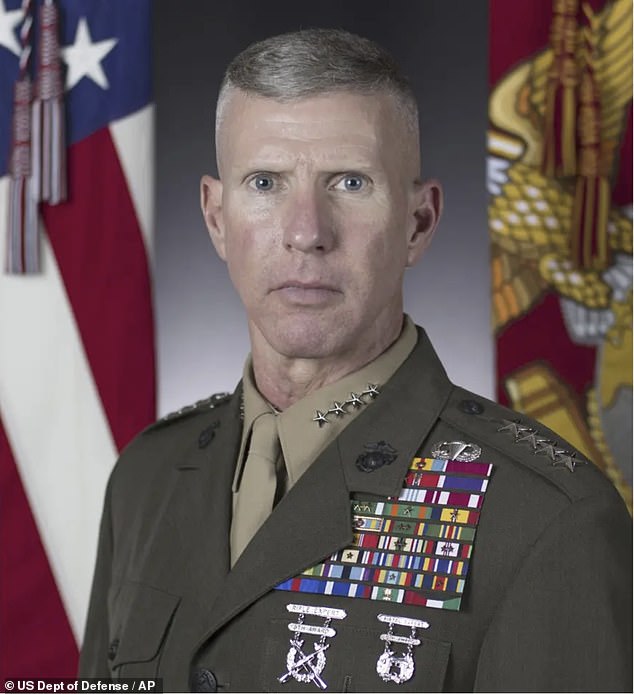
General Eric Smith, the Marine Corps’ top general, has been hospitalized after he ‘fell face first’ while having a heart attack while jogging
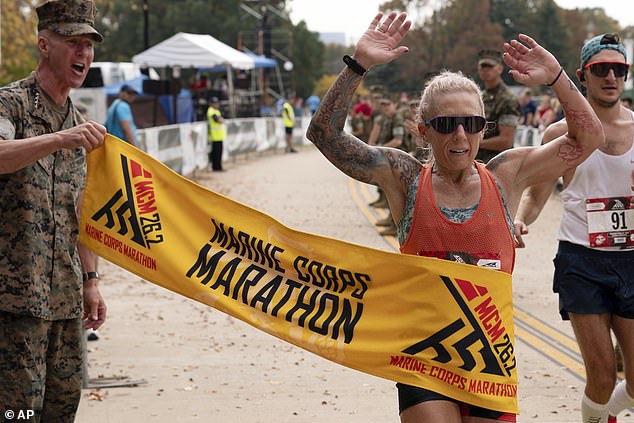
Hours before his collapse, Smith was seen cheering on runners at the annual Marine Corps Marathon
In accordance with federal law, Lt. Gen. Karsten Heckl is acting as commander, as there is currently no number two under Smith due to Republican Sen. Tommy Tuberville holding up promotions over the Pentagon’s policy of allowing staffers to travel for abortions .
Heckl is the deputy commander for combat development and integration.
Smith is a member of the Joint Chiefs of Staff. Before his appointment in September, he was acting commander.
The Marine Corps Times reported in September that Smith was acting as both number one and number two commanders.
He told the website that his day involved waking up at 5:30 a.m. to read intelligence reports from a secure setup in his home.
‘Nobody has to feel sorry for me. I make a lot of money, and usually no one yells at me, so that’s good. But it’s not sustainable if the last thing you do is turn off your computer at 11:30 p.m. and get up at 5 a.m.,” Smith says.
‘I don’t mind breaking my own back. It’s just that I have to make good decisions,” he added. “If you work on sleep over a five-hour period, there’s going to be sloppiness.”
CNN reports that the Tuberville protests have resulted in 378 Pentagon nominations being blocked.
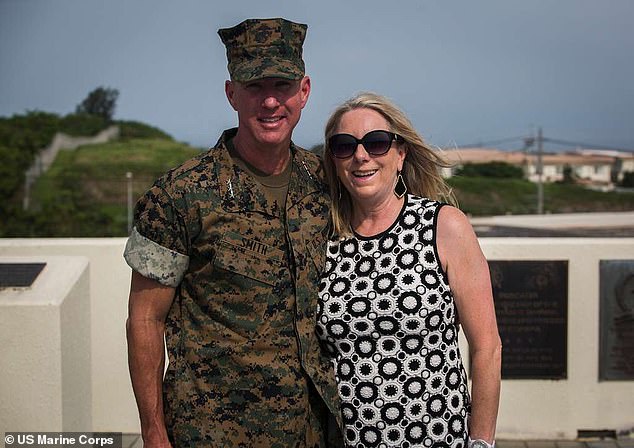
General Smith pictured with his wife Patrisha in Japan in 2018
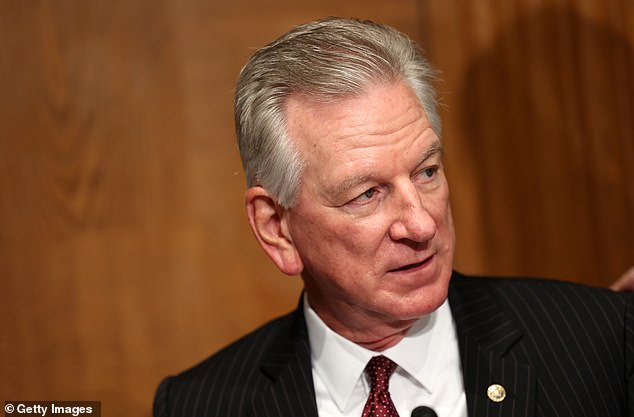
Republican Senator Tommy Tuberville has blocked the nomination of Smith’s second in command over the Pentagon’s abortion policy
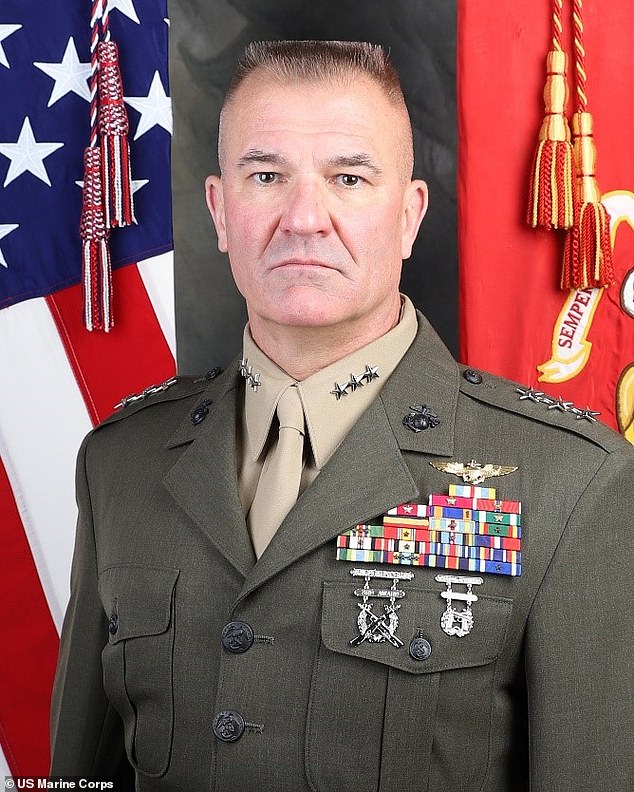
In accordance with federal law, Lieutenant General Karsten Heckl serves as acting commander
A career infantry officer, Smith has commanded at every level and served multiple tours in Afghanistan and Iraq, including time in Fallujah and Ramadi during heavy fighting in 2004 and 2005 during Operation Iraq Freedom.
He later served as the senior military advisor to Secretary of Defense Ash Carter and in 2019 took over as deputy commander for combat development.
In that role, Smith worked with his predecessor Gen. David Berger on a broad campaign to transform the Marine Corps to be better able to fight amphibious warfare in the Pacific after years of fighting terrorist groups in the Middle East.
The plan was hailed by many in the Pentagon and Congress as a crucial way for the Marines to prepare for a potential conflict with China.
Smith and Berger argued that the changes will improve the Marine Corps’ ability to fight in contested areas, especially within range of an enemy.
That element is critical in the Indo-Pacific, where thousands of U.S. and allied troops are easily within missile range (or even missile range) of both China and North Korea.
But some measures, including the transfer of naval tanks to the army, drew sharp criticism from a group of retired marine generals.
Speaking at a naval conference in February, Smith defended the decision as crucial to modern warfare against highly capable enemies.
“I love tanks, I’ve used them in Iraq, I’ve used them in Afghanistan,” Smith said. But he said they are more vulnerable and cannot move fast enough to prevent new, high-tech attacks.
“If an enemy can hit a tank 60 miles away with long-range fire,” he said, “I can’t move him in time to be in a position to do anything I need him to do…” It’s not so that they’re bad, but I can’t afford to use them in my current mission.’
Smith was promoted to four-star general in 2021 and took over as assistant commander, where he focused on recruiting, retaining and managing naval force development.
